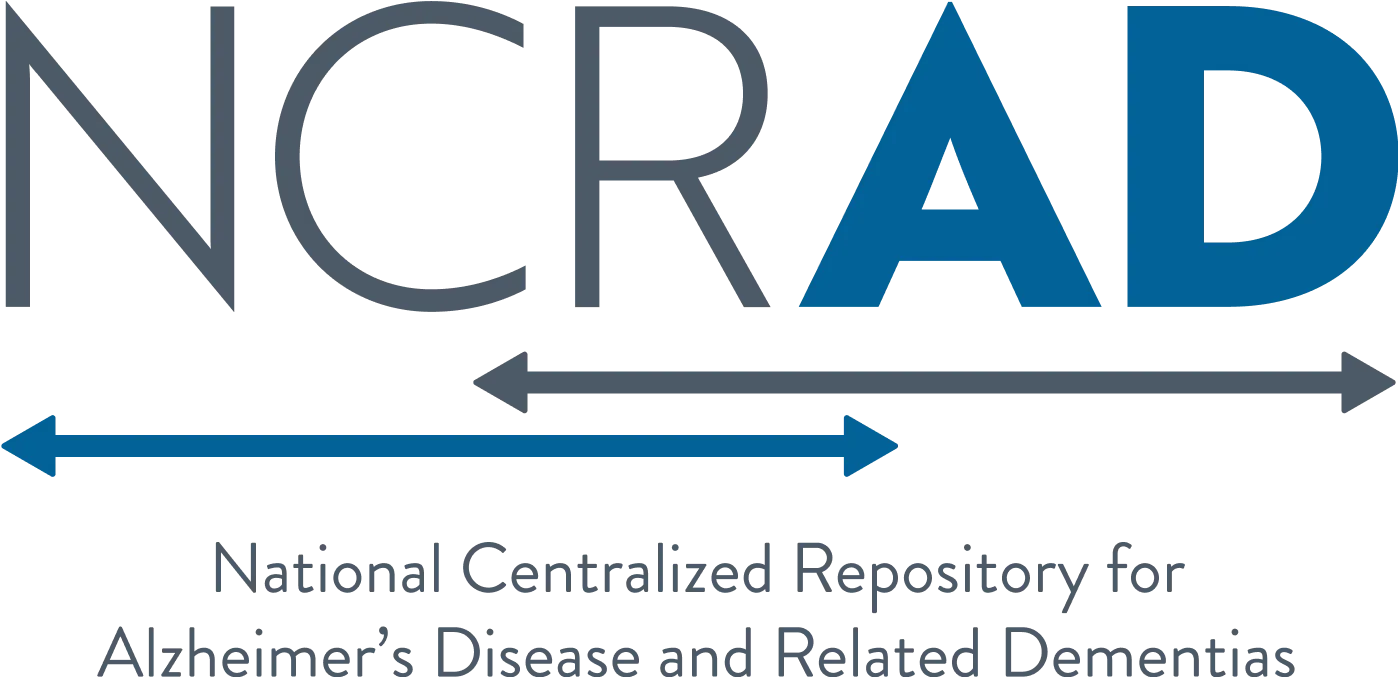NCRAD Family Study
We sincerely appreciate your interest in our research. This study is funded by the National Institute on Aging (NIA) to help researchers find genes that increase the risk for Alzheimer’s disease (AD). This webpage will provide you with the information and instructions you will need to determine if this study is right for you and your family. If If you have any questions at any time, feel free to contact us at alzstudy@iu.edu or toll-free at 1-800-526-2839.
What is the Purpose of This Study?
The goal of the National Centralized Repository for Alzheimer's Disease and Related Dementias (NCRAD) is to help researchers find genes that increase the risk for Alzheimer’s disease (AD) and dementia. To accomplish this goal, in 1990, NCRAD was funded by the National Institute on Aging (NIA) to provide researchers with the biological samples and data necessary for finding important genetic factors in AD and dementia. Understanding the causes of AD and dementia will likely lead to better treatments for this devastating disease.
Dementia and memory loss are devastating disorders which become more common as an individual ages. AD is the most common form of dementia among older persons. Beyond age 85, as many as 40% of individuals have AD. As the population of the U.S. continues to age, the number of individuals affected with AD will continue to rise. It is estimated that by the year 2050, there will be 14 million persons over the age of 65 affected with AD.
Therefore, NCRAD is looking for families with two or more biologically related living family members with dementia. These family members will need to provide a blood sample and medical records.
Getting Started
In order to determine if you are eligible for the NCRAD study, you will need to complete a few simple steps.
- Screening Questions
You will be asked a series of questions that will help us to determine if this study is right for you and your family. Depending on your responses to these questions, you may be asked to agree to the terms of the NCRAD study Informed Consent and complete a Family History Questionnaire (FHQ). We will send the FHQ questionnaire to you via regular mail. The responses to the screening questions as well as the FHQ will allow us to ensure that your family is a right fit for our study. Your personal information will be stored on safe and secure servers and will never be shared. - Agreeing to the Terms of the Study Informed Consent
If your family qualifies for the study, you will be directed to the NCRAD Informed Consent. Carefully read the Informed Consent document. At the end of the Informed Consent, you will be asked if you have any questions. If you indicate that you have questions, you will not be able to agree to the terms of the Consent until a Study Coordinator contacts you. - Provide Contact Information
If you and your family are eligible for the NCRAD study, you will be asked to provide your contact information. This includes your home address, daytime phone number, and email address.

Telephone Cognitive Assessment for NCRAD
The goal of the National Centralized Repository for Alzheimer's Disease and Related Dementias (NCRAD) is to help researchers identify the genes that contribute to Alzheimer’s disease (AD) and other related dementias. Changes in memory can occur at any time, and in some instances may be an early sign of possible AD. There has been extensive research by many scientists who have sought to study these early memory changes. NCRAD is eager to help scientists who want to better understand the relationship between normal memory changes and those changes that might precede AD or related dementias.
To help scientists perform these studies, NCRAD has selected a short series of memory tests that can be administered over the telephone. NCRAD coordinators will be contacting family members who are over the age of 60 and have donated blood samples to NCRAD. Due to the large number of families involved with NCRAD and the time required to complete the memory questions by telephone, we will be sending out notices to families on a rolling bases. So, individuals should not worry if they are not contacted immediately.
How to Prepare
We are asking family members who may or may not have some memory difficulty to consider completing these brief memory tests. These questions will typically take about 20-30 minutes to complete, and are best completed when the individual is in a quiet location and will not be disturbed while the questions are being answered. Because this is part of a research study, we will not be able to provide individuals any results concerning their test performance or the performance of other family members.
It is only through the active participation of families with AD or related dementias that we will be able to unravel the genetics of dementia. NCRAD is very hopeful that the data we are able to collect through these memory tests will help increase the usefulness of the NCRAD study samples.
Contact Us
If you have any questions, or if you would like to call for an update on when your next cognitive assessment will take place, please feel free to contact NCRAD staff at 1-800-526-2839 or by email at alzstudy@iu.edu. If you are asking for an update, we may ask for your family number and/or your full name so that we may search our database.
Thank you!

